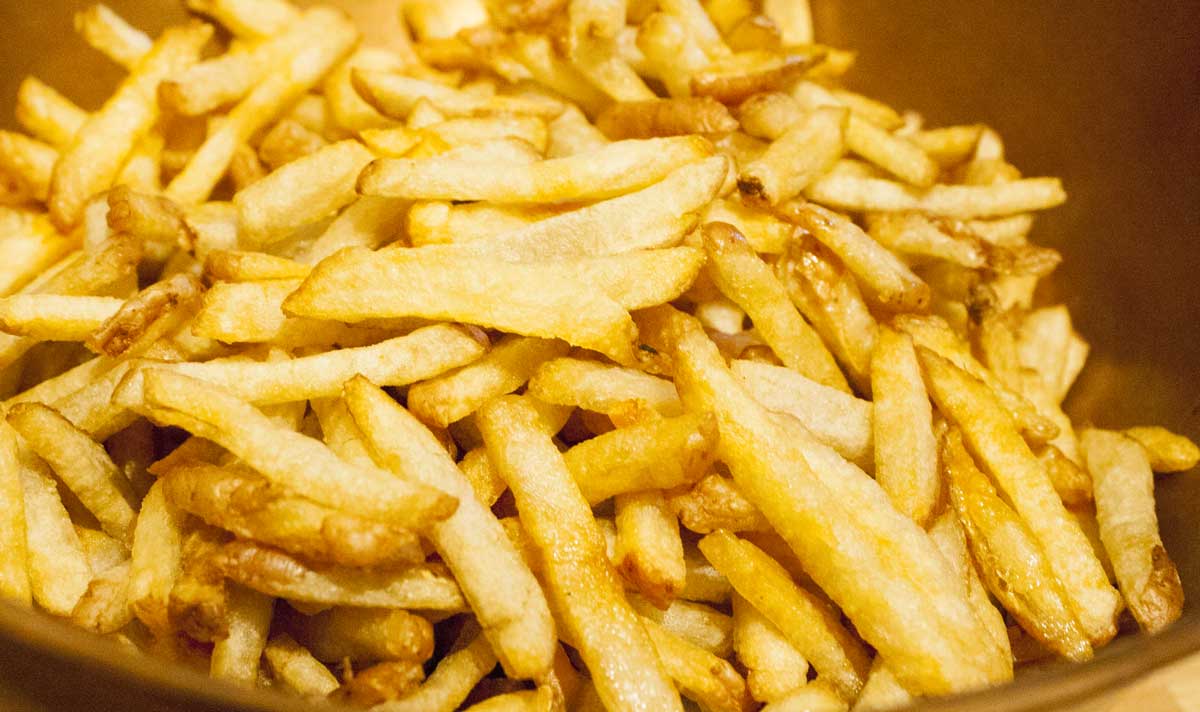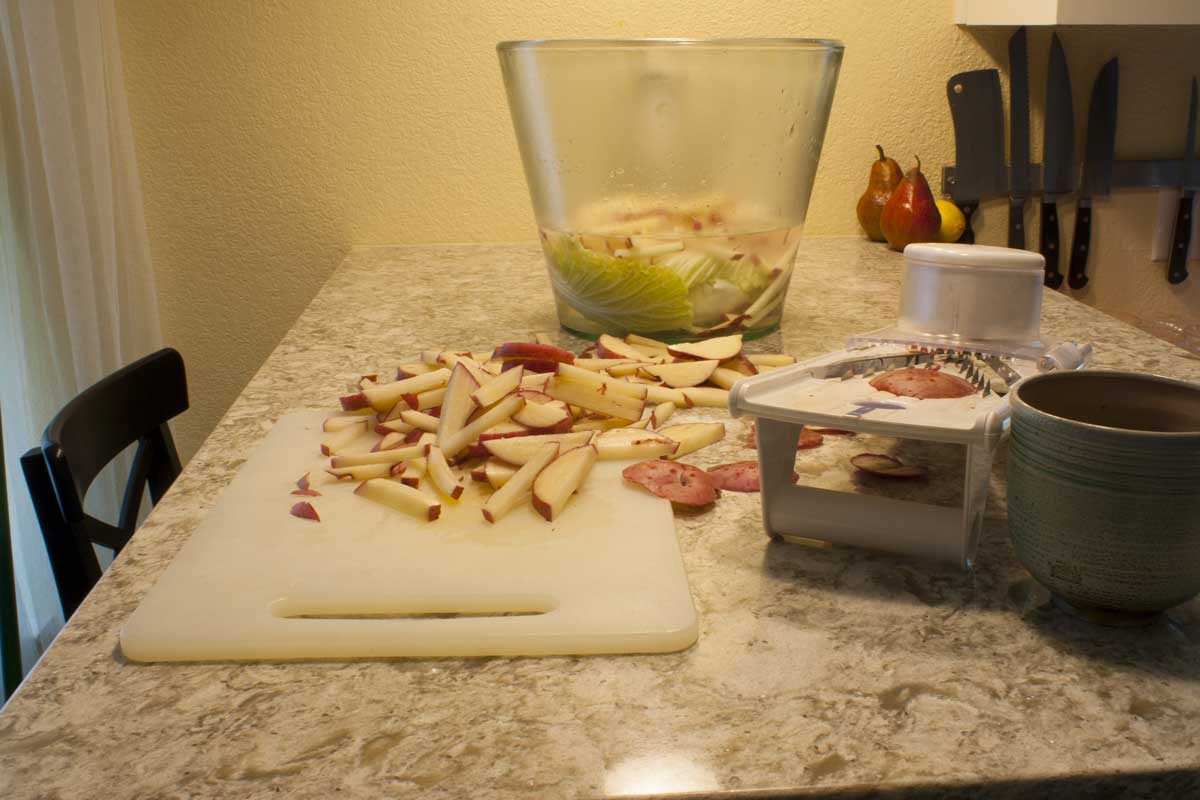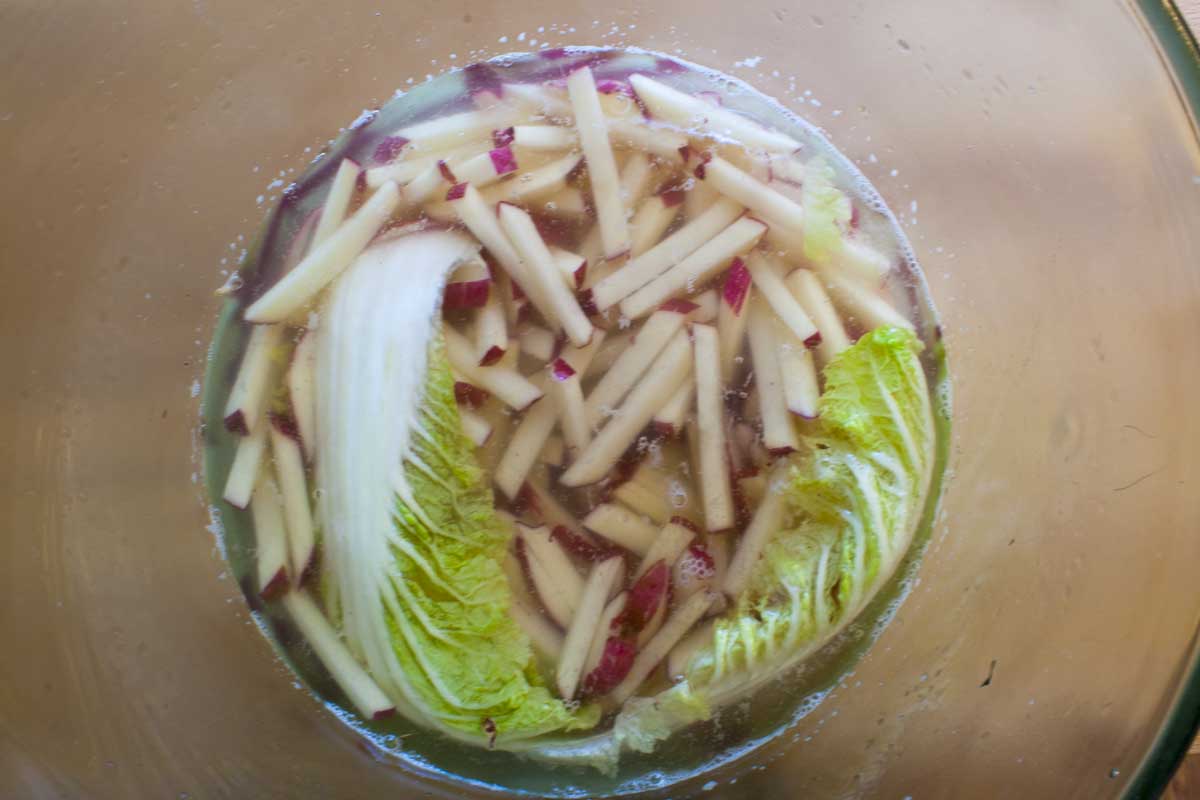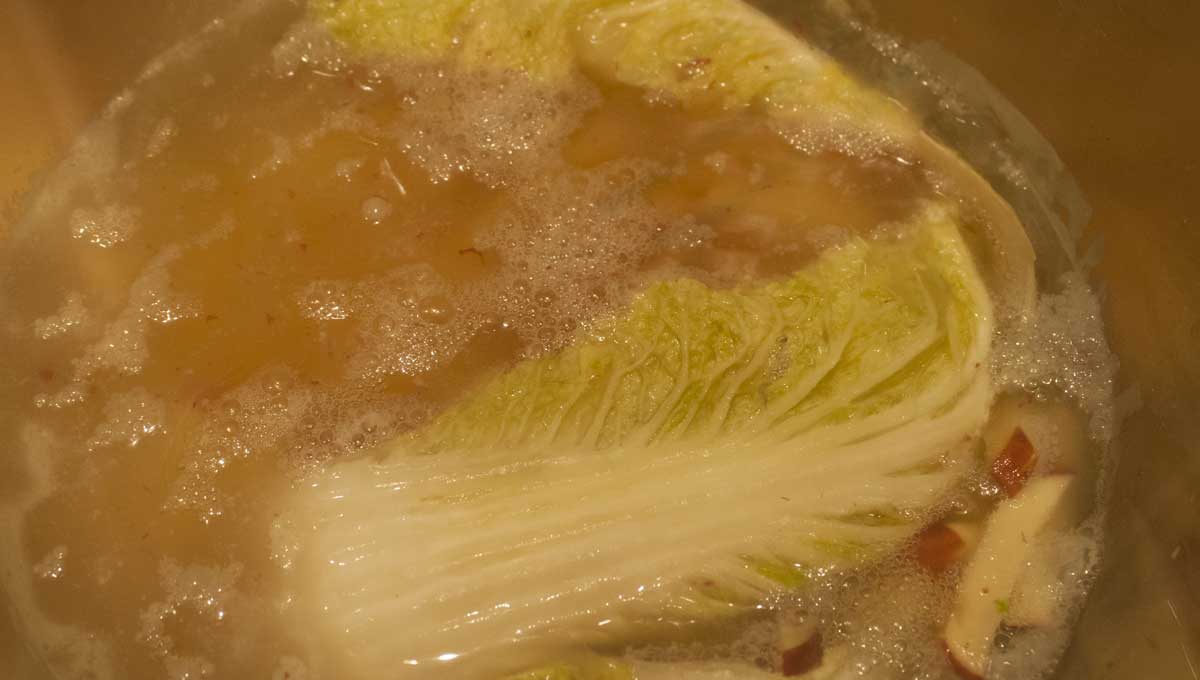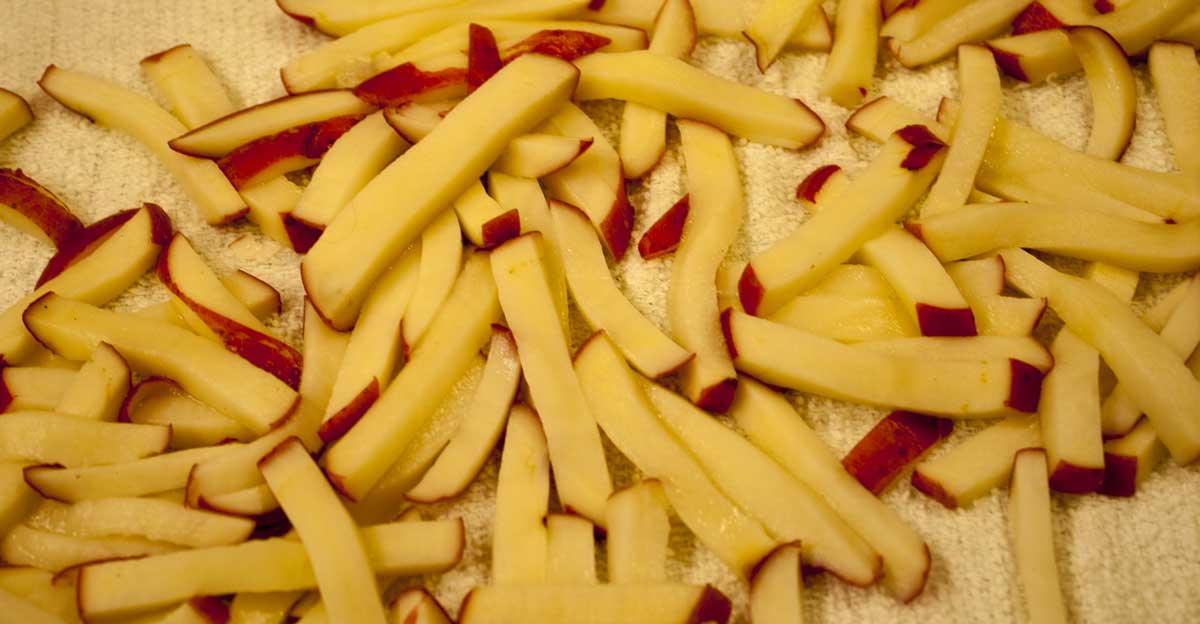So, there appears to be a theme developing with our current explorations. This is the second recipe we’ve posted that has been fermented or pickled. And it’s not going to be the last. There’s at least one more recipe we’ll share that required creating a funky smelling mixture before it was ‘food’.
I’m not a big french fry fan. It’s not a post-9/11-patriotic thing: I just find them to be sort of one note. If you didn’t add salt or ketchup or some other acid you probably would never eat a french fry. But, then again, would you really eat a potato in any preparation without adding something?
These are particularly nice because the fermenting process provided a tanginess that doesn’t really need a condiment and the finished fries are super crispy. Give them a try. But don’t be alarmed by what happens in the fermenting jar. Check the photos below for an idea of what to expect.
Also, while the name of this recipe is Pickled French Fries – they are not, in the truest sense of the word – pickled since there’s no vinegar and they’re not preserved in any way. More accurately, the potatoes are fermented. Much like kimchi (but without burying them for a year). Sadly, despite the alliteration, Fermented French Fries just doesn’t sound appealing. So, they’re called Pickled French Fries.
Ingredients
- 3 1/2 pound medium red potatoes, scrubbed and cleaned. Skin on.
- 2 quarts un-chlorinated water *
- 5 tablespoons (90 grams by weight) kosher salt (don’t use table salt)
- 4 Napa Cabbage leaves
- 1-2 quarts of oil for frying (we use grapeseed)
Hardware
- Large pot or bowl
- A mandoline will make slicing the potatoes much, much, much faster (I would never do this without a mandoline)
- Dutch oven for frying
- Frying thermometer
- Slotted spoon or, preferably, a chinese strainer
Directions
- Combine water and salt in your large bowl and stir to dissolve.
- Trim your potatoes into ¼ sticks, discarding the tiny leftover bits.
- Add potatoes and cabbage to bowl of brined water.
- Cover and store in cool, dark place for 4-5 days or up to a week.
* Need non-chlorinated water? IF your municipality uses chlorine and not chloramine you can leave tap water on the counter overnight and the majority of chlorine will dissipate. Austin (where we live) uses chloramine. Chloramine can only be removed by filtering or chemical additions. A Brita filter removes enough chloramine to make our water safe for fermentation. YMMV: You may need to buy bottled water.
- At the end of your fermentation process discard the brining solution and napa leaves. There will be a fairly strong odor. Unless there is something really bad going on in the bowl you can safely ignore it.
- Pat potatoes dry – but don’t rinse them.
- Pour 3-4” of oil into your dutch oven (or other deep pot) and heat over medium-high to 325°F.
- Working in small batches to prevent lowering the temperature of the oil too much, fry potatoes for about 5 minutes until they are tender and cooked through.
- Remove with a strainer or spoon and drain on a wire rack over a baking sheet. (We do this rather than on a towel so we can pour the drained oil back into the pan for the next step.)
- Raise the temperature of the oil to 375°F, and refry your potatoes (again in small batches) for about 1 minute. They may just begin to brown on the edges.
- Remove to another wire rack to drain.
We don’t normally salt these since the brining does such a great job of adding flavor. If you routinely salt your fries taste these before you unleash the salt.


